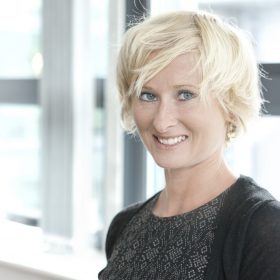Introduction
Learning to manage going to the toilet independently is an important milestone in growing up. Being continent involves knowing you need to go, delaying until an appropriate place can be found, urinating and/or defecating, cleaning up afterwards and re-dressing. Children with special educational needs and disabilities may be slower to learn to manage going to the toilet, or they may need extra help. Many children with special educational needs and disabilities can become continent with training, though it is currently uncertain what are the best ways to assess and treat children with special educational needs and disabilities.
Various things can influence if and when toilet training commences. A key issue is whether families and professionals think a child is ready and able to begin toilet training.
Aims and Objectives
The work will enable us to describe current clinical practice in the NHS for improving continence of children and young people with special educational needs and disability, and summarise evidence for interventions. This will allow us to make recommendations for future research and practice. A Family Faculty public involvement working group will be involved throughout the study. The proposed public involvement in this project will ensure i) the research is conducted in acceptable ways, ii) the research outputs are relevant and useful to families of children with neurodisability, and iii) our dissemination materials and methods are appropriate and relevant.
We will also work in partnership with relevant professional stakeholders. We will establish an expert Professional Advisory Group with a diverse representation across key clinical specialities, education, residential carers, and representatives from relevant charities.
Project Activity
This research has two main ways to address the research questions.
We want to find out how NHS staff assess and treat children with special educational needs and disability to help them become continent.
We will:
- Conduct surveys with health professionals working with children with neurological conditions through various professional societies and other networks, and with families who have experience using NHS services to promote continence.
We will bring together results of all existing studies testing ways to assess and improve continence for children with special educational needs and disabilities. This is called a systematic review. It provides a comprehensive and unbiased summary of existing research.
We will:
- Look for published research examining whether assessment and treatments are effective and value for money, and any research on how easy approaches are to deliver.
- Look for and include studies on the experiences of families or health professionals carrying out interventions to promote continence.
- Assess how reliable the evidence is, and what it tells us.
- Collate findings from the surveys and systematic review and ask families and expert professionals for their impressions of what we have found.
- Discuss with them any gaps in the evidence and potential priority questions to address subsequently in future research.
We will collate findings from the surveys and systematic review and interpret them in consultation with our professional and family advisory panels. This research will enable us to synthesise and summarise evidence for interventions and make recommendations for research and clinical practice for improving continence for children and young people with neurodisability.
This research is funded by NIHR Health Technology Assessment Programme. The research team consists of specialists in continence from the Paediatric Continence Forum and research methodologists including our Evidence Synthesis Team.
Get in touch if you are interested in this topic, or if you have any questions.
![]()
Related publications
Improving continence in children and young people with neurodisability: a systematic review and survey
Download the PaperPenARC Staff

Morwenna Rogers
Information Specialist
Rebecca Whear
Senior Research Fellow
Dr Harriet Hunt
Postdoctoral Research Fellow
Professor Jo Thompson-Coon
Professor of Evidence Synthesis and Health Policy
Professor Stuart Logan
Director of PenARC and Methods for Research and Improvement Theme Lead
Susan Ball
Senior Research Fellow in Medical Statistics
